-
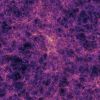 +3 +1
+3 +1Dark Energy May Not Exist: Something Stranger Might Explain The Universe
There might not be a mysterious 'dark' force accelerating the expansion of the Universe after all.
-
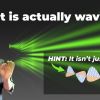 +2 +1
+2 +1The Biggest Question Physicists Aren’t Asking
-
 +4 +1
+4 +1Leonardo da Vinci's Forgotten Experiments Explored Gravity as a Form of Acceleration
A new look at da Vinci’s papers reveals his insightful attempts to probe the nature of gravity 500 years ago
-
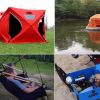 +2 +1
+2 +1Scientists Discovered Something Kinda Alarming: The Universe Shouldn't Actually Exist
These models are very, very wrong.
-
 +19 +2
+19 +2We could detect a malfunctioning warp drive on an alien starship
Faster-than-light warp drives are theoretically possible to build, and if aliens are using them, we should be able to detect the gravitational waves produced when one goes wrong
-
 +25 +6
+25 +6New warp drive concept does twist space, doesn’t move us very fast
While it won't make a useful spaceship engine, it may tell us more about relativity.
-
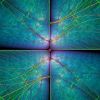 +26 +4
+26 +4Rethinking reality: Is the entire universe a single quantum object?
In the face of new evidence, physicists are starting to view the cosmos not as made up of disparate layers, but as a quantum whole linked by entanglement
-
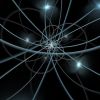 +26 +5
+26 +5Gravity experiments on the kitchen table: why a tiny, tiny measurement may be a big leap forward for physics
A new measurement of gravity at small scales hints at an alternative to billion-dollar experiments for the future of physics.
-
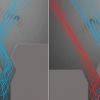 +47 +10
+47 +10Physicists Discover Surprising Quantum-Like Behavior in Tiny Bouncing Droplets
Quantum physics is fundamentally weird, so much so that we need thought experiments of hidden cats in boxes and metaphors of spinning coins to even begin to comprehend its laws.
-
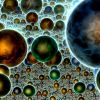 +38 +11
+38 +11Many physicists assume we must live in a multiverse – but their basic maths may be wrong
The universe appears to be fine-tuned for life to evolve.
-
 +36 +6
+36 +6An Introduction to Flashover - Episode 9
-
 +43 +4
+43 +4Physicists Say Magnets Offer Room Temperature Quantum Computing
The breakthrough material, a blend of aminoferrocene and graphene, has magnetic properties 100 times stronger than pure iron, eliminating the reliance on rare Earth materials for magnet construction.
-
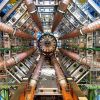 +36 +12
+36 +12Particle accelerator on a chip
Particle accelerators are crucial tools in a wide variety of areas in industry, research and the medical sector. The space these machines require ranges from a few square meters to large research centers. Using lasers to accelerate electrons within a photonic nanostructure constitutes a microscopic alternative with the potential of generating significantly lower costs and making devices considerably less bulky. Until now, no substantial energy gains were demonstrated. In other words, it has not been shown that electrons really have increased in speed significantly. Two teams of laser physicists have just succeeded in demonstrating a...
-
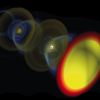 +28 +7
+28 +7Physics-Defying Quasiparticles Could Open a Whole New World of Microscopy
To pry into the private lives of objects in the microscopic domain (and beyond), scientists often rely on extremely bright sources of light.
-
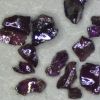 +38 +6
+38 +6LK-99 isn’t a superconductor — how science sleuths solved the mystery
Replications pieced together the puzzle of why the material displayed superconducting-like behaviours.
-
 +28 +4
+28 +4Made you look
-
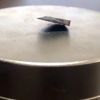 +35 +4
+35 +4Viral room-temperature superconductor claims spark excitement – and skepticism
Room-temperature superconductors could transform technology – but the latest, much-hyped claims should be approached with caution.
-
 +39 +9
+39 +9Lights could be the future of the internet and data transmission
A new study led by the University of Surrey and University of Cambridge has investigated how to release high-speed photonic sources using metal-halide perovskites. These are semiconductors being researched with LEDs for their excellent optoelectronic properties and low-cost processing methods.
-
 +35 +6
+35 +6The First Room-Temperature Ambient-Pressure Superconductor
For the first time in the world, we succeeded in synthesizing the room-temperature superconductor working at ambient pressure with a modified lead-apatite structure.
-
 +4 +1
+4 +1How medieval thinkers did physics without knowing it
How medieval thinkers foreshadowed modern physics in investigating the character of machines, devices and forces
Submit a link
Start a discussion




















